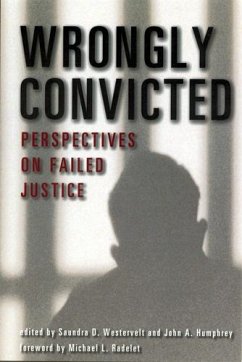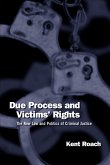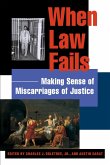The American criminal justice system contains numerous safeguards to prevent the conviction of innocent persons. The Bill of Rights provides nineteen separate rights for the alleged criminal offender, including the right to effective legal representation and the right to be judged without regard to race or creed. Despite these safeguards, wrongful convictions persist, and the issue has reverberated in the national debate over capital punishment. The essays in this volume are written from a cross-disciplinary perspective by some of the most eminent lawyers, criminologists, and social scientists in the field today. The articles are divided into four sections: the causes of wrongful convictions, the social characteristics of the wrongly convicted, case studies and personal histories, and suggestions for changes in the criminal justice system to prevent wrongful convictions. Contributors examine a broad range of issues, including the fallibility of eyewitness testimony, particularly in cross-racial identifications; the disadvantages faced by racial and ethnic minorities in the criminal justice system; and the impact of new technologies, especially DNA evidence, in freeing the innocent and bringing the guilty to justice. The book also asks such questions as: What legal characteristics do wrongful convictions share? What are the mechanisms that defendants and their attorneys use to overturn wrongful convictions? The book also provides case studies that offer specific examples of what can and does go wrong in the criminal justice system. The contributors argue that the most important single characteristic among wrongful conviction cases is the chronic denial by politicians and prosecutorsof the existence of a problem and their failure to act decisively when evidence of a possible wrongful conviction comes to light.
Hinweis: Dieser Artikel kann nur an eine deutsche Lieferadresse ausgeliefert werden.
Hinweis: Dieser Artikel kann nur an eine deutsche Lieferadresse ausgeliefert werden.




![The Queen Vs. Louis Riel, Accused and Convicted of the Crime of High Treason [microform]: Report of Trial at Regina.-Appeal to the Court of Queen's Be The Queen Vs. Louis Riel, Accused and Convicted of the Crime of High Treason [microform]: Report of Trial at Regina.-Appeal to the Court of Queen's Be](https://bilder.buecher.de/produkte/65/65492/65492155m.jpg)



